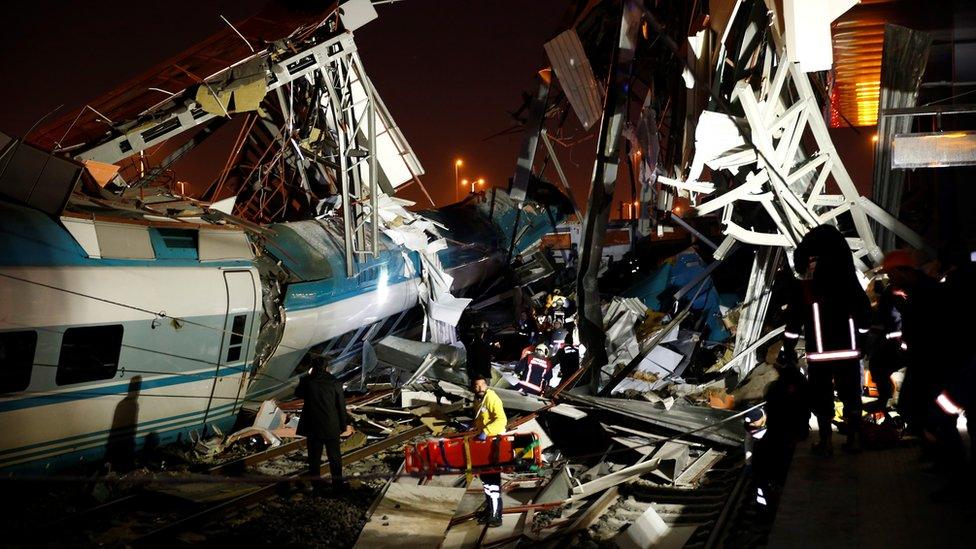Pakistan train fire: Karachi to Rawalpindi service blaze kills dozens
- Published
Survivors were treated at nearby hospitals in the hours after the blaze
At least 74 people have died after a train travelling between the Pakistani cities of Karachi and Rawalpindi caught fire in the middle of its journey.
Railways Minister Sheikh Rashid Ahmed said the fire started when a gas cylinder, which passengers were using to cook breakfast on board, exploded.
The huge blaze spread to at least three carriages.
According to officials cited in local media, many victims died as they tried to jump off the moving, burning train.
Another 40 people were injured. Officials say the number of victims may still rise.
BBC Urdu's Farhat Javed, who visited hospitals where victims are being treated, said many patients were too traumatised to speak.
Survivor Shahid Imran told the BBC he realised a fire had broken out when he heard screaming. He pushed his wife out of a window and then jumped after her.
Mr Imran was slightly hurt in the fall from the moving train, but his wife suffered severe head injuries.
Another survivor told the BBC they pulled the emergency chain to get the train to stop, but it did not slow down.
Doctors are treating people for burns, broken limbs and head injuries, our correspondent said.
What happened?
The accident happened near the town of Rahim Yar Khan in the south of Punjab province.
Many passengers were pilgrims heading to Raiwind near Lahore for one of Pakistan's largest annual religious congregations, organised by the Tablighi Jamaat Sunni Muslim missionary movement.


Three carriages were set alight, officials said, with 54 people in the 11th carriage and 78 each in carriages 12 and 13. Most of these passengers were on their way to the religious festival.
Mohammad Ramzan, who was on board, told BBC Urdu some pilgrims were making tea when their gas cylinder exploded. He jumped from the train to safety.
Survivor Jamshed Pathan told BBC Urdu he was in carriage 11 when they realised there was a fire, and that it had broken out just after they finished morning prayers.
"There was chaos everywhere," he said. "It was very difficult for us to get out and save ourselves."
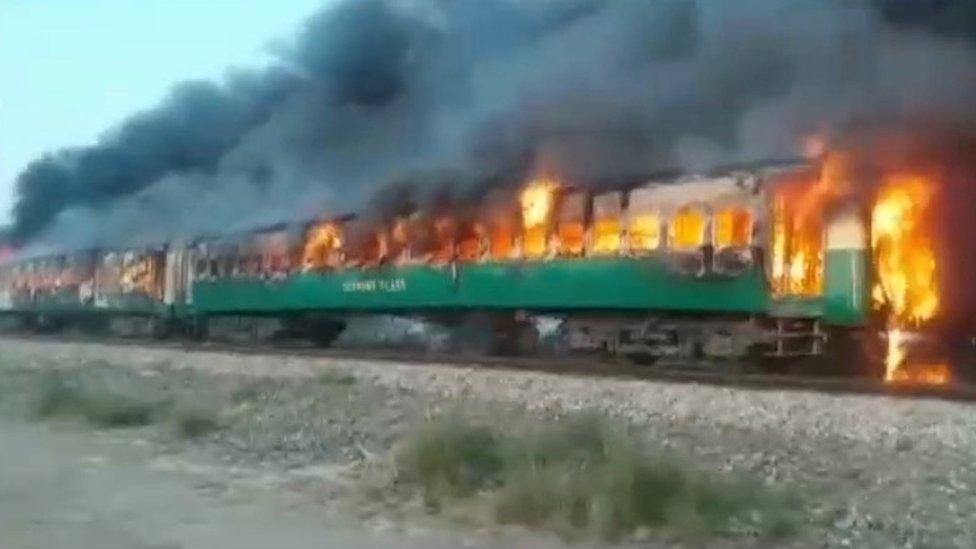
Another man, who gave his name as Ghaffar, said he could smell something in the night, "but no one paid attention". He and his friends helped rush injured passengers to hospital.
"I have no words to explain what we saw," he said. "The rescue teams got there very late."
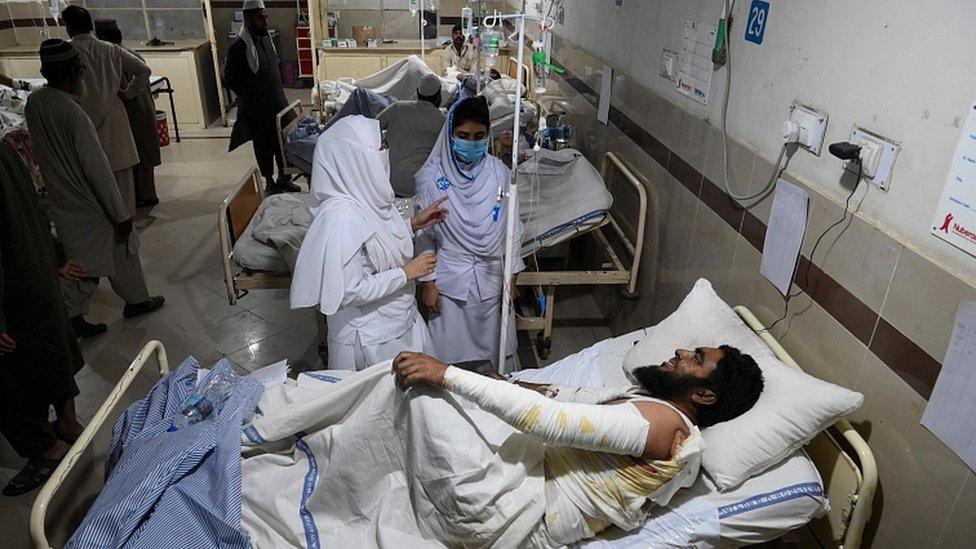
The injured were taken to hospitals including this one in Bahawalpur
District deputy commissioner Jamil Ahmed said some of the victims had suffered such severe burns that they could not be identified without DNA testing.
Evidence is now being collected at the scene and sent off for forensic tests, an anonymous official told BBC Urdu.
What was the cause?
"Two cooking stoves blew up. They were cooking, they had [cooking] oil which added fuel to fire," Sheikh Rashid Ahmed said.
Passengers bringing stoves onto trains in order to cook meals on long journeys was a common problem, the minister said. Though it is common to carry food on board, gas cylinders are banned.
But other reports from the scene suggest electrical problems could have been the cause. Several survivors have reportedly said they believed a short-circuit on board may have been to blame.
Prime Minister Imran Khan said he was "deeply saddened by the terrible tragedy", external, adding that he had ordered an "immediate inquiry" into the cause of the fire.
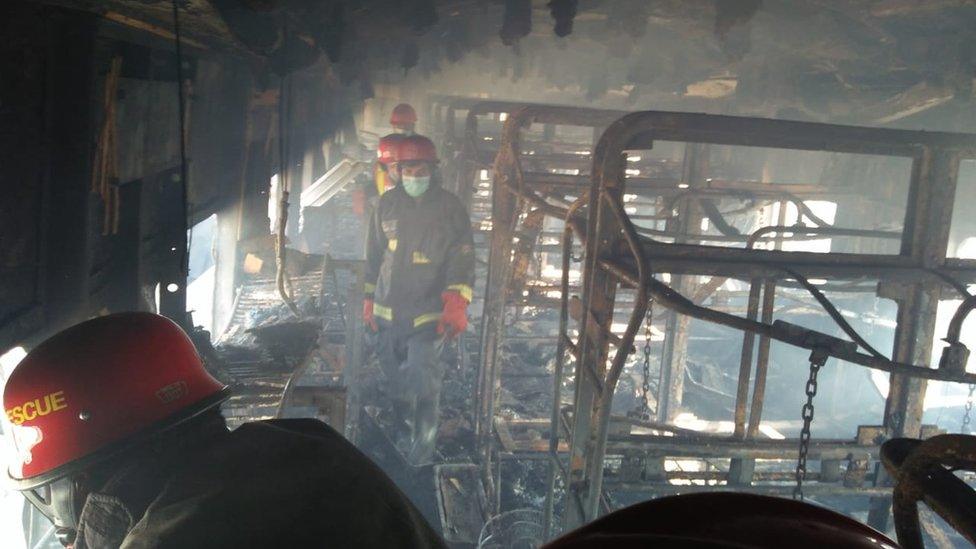
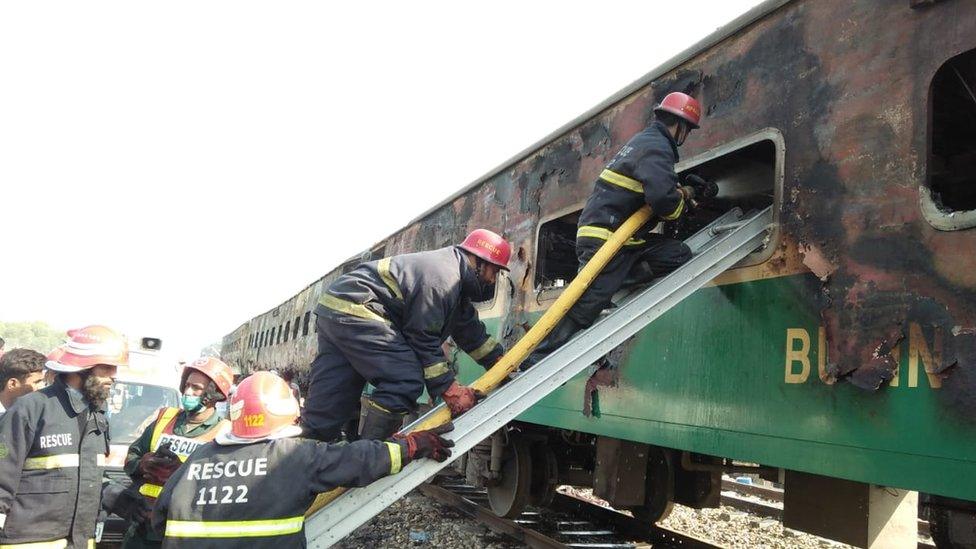
After an earlier suspension in the wake of the blaze, the railways minister said services had now been restored.

A crowded train prepped for a long journey
By Abid Hussain, BBC Urdu
Train travel is one of the most popular means of transport in Pakistan, particularly among middle- and lower-income groups. Built by the British during pre-partition era, the railway tracks cover the length of the country.
However, while some of the upscale trains have dedicated dining carriages, most of the country's trains are in poor condition and have barely functioning amenities.
Therefore, passengers choose to bring things along with them, or refresh themselves where the trains stop.
They also take advantage of the fact that inspection is more relaxed than at airports, bringing banned items like cooking stoves and oil canisters to keep themselves sustained during the long hours on board.
This particular service - Tezgam - is one of the oldest and most popular, travelling between Karachi in the south and Rawalpindi in the north.
The journey takes more than 25 hours, external, with each of its carriages boasting space for somewhere between 60 and 80 passengers on bunk beds. Tickets cost between 1,500 rupees ($9.60; £7.40) and 5,000 rupees ($32; £24.80), depending on the class.

This is Pakistan's worst rail disaster in over a decade, but the country has a history of fatal railway accidents.
Casualty figures are often high because trains are packed with far greater numbers of passengers than they were designed for.
In July, 11 people died in an accident, with four dying in another accident in September.
In 2007, at least 56 people were killed, external and more than 120 injured in a crash near Mehrabpur.
And in 2005, more than 130 people were killed when three trains collided in Sindh province, external in one of the country's worst train disasters.

- Published5 September 2019
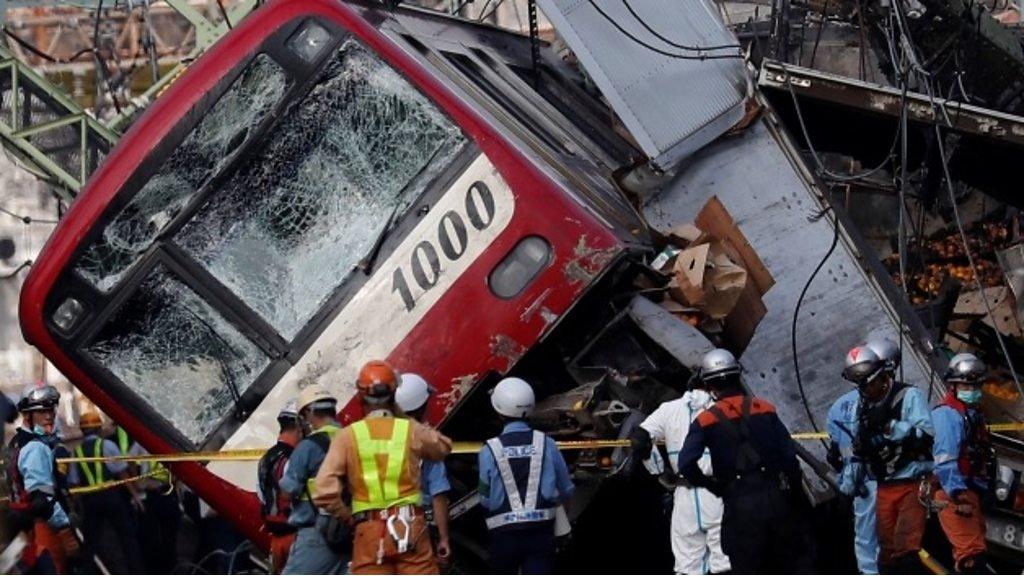
- Published3 January 2019
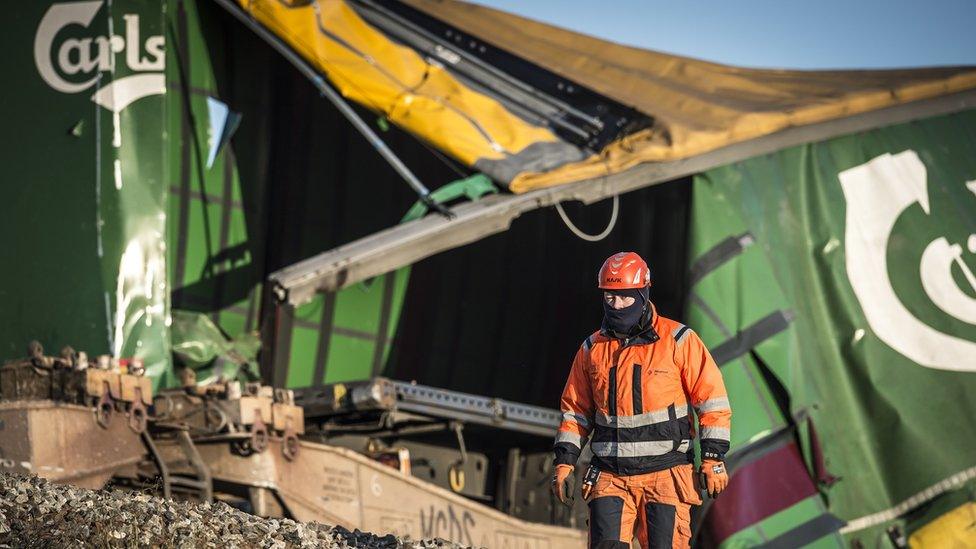
- Published13 December 2018
